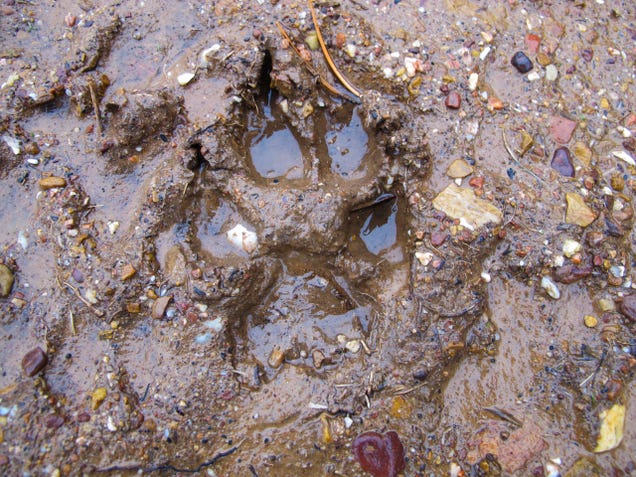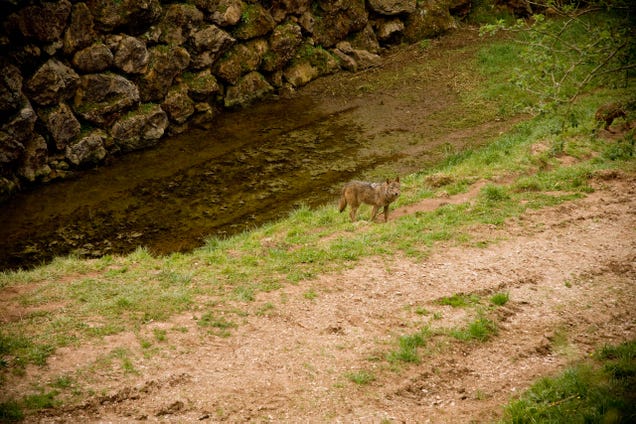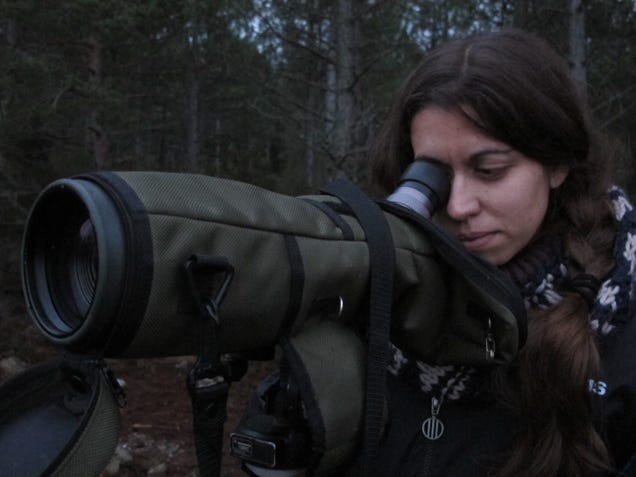Which
country in Western Europe has more wolves than Montana, Idaho and
Wyoming combined? Spain. What follows is my experience finding the
wolves and how you can too.

A
generous bartender in the village of Villadeciervos had told us
beforehand that there were two forest rangers in this area. One who
liked wolves and another who did not, nor anyone who came to look for
them. So when we heard the slow approaching sound of tires on the dirt
road behind us we were a little worried. We knew it was one of the
rangers, no one else travels through these remote hillsides, but we
didn't know which one. We were in the Sierra de Culebra mountains of
Spain, and we were most definitely there to look for wolves.
Coming
to a stop at the crest of the hill, the ranger opened the door of his
forest green pickup truck, took one last drag before he ground his
cigarette into the dirt, and approached us. At this point I should
mention that I speak very little Spanish. Lucky for me, however, my wife
is from Madrid.
"Hola," came the graveled greeting from the ranger.
He
asked us if we were here to try and see the wolves, and we answered
yes, as he looked over the valley below. Dark clouds rolled by and
threatened rain while the sweet smell of pine hung in the air. The
ranger asked if we had a spotting scope. We said no, only binoculars.
His response was short, "you will see nothing."
The
ranger then spoke directly to me in rapid Spanish and I responded with
what must have been a very perplexed expression. Turning to my wife he
spoke further.
"What did he say?" I asked her.
"He asked if you speak Spanish. I said only a little. Then he said you should learn Spanish."
Nice guy, I thought.
He asked how long we would be in the area and we said a few days.
The
ranger then looked out over the valley again, this time with his
binoculars. Not saying a word, he turned around and walked back to his
truck. I was pretty sure I knew which ranger we had just run into.
Getting
to his car, he reached into the back and pulled out a spotting scope
and black tripod. Cupping his hand against the cool wind to light
another cigarette, he walked back over to us. Setting up the scope on
its tripod, he meticulously scanned the brush below.
Lifting
his head he turned to us with the cigarette tucked in the corner of his
mouth. "When you leave, give the scope to the bartender in the village,
tell him it's for Pedro". He climbed back in his truck and left.
We got lucky
Before
dawn on our third day, we walked along the dark forestry road, the
gravel crunched under our boots in the December morning chill. Arriving
at the top of the hill, we setup the borrowed scope and waited for the
morning glow.
As
the sun rose over the landscape, it slowly burned off the mist that
clung to the heathered valley below. In the early light, three giant
red deer stags burst out from the pines into the open. The stags, which
are closely related to North American elk, stopped and grouped together,
anxiously looking around them. They looked nervous. Then, a few
hundred yards behind the stags, four wolves, flush in their thick winter
coats, trotted confidently down towards the deer.
One
wolf promptly broke off from the rest of the pack and sprinted at the
stags. Chins raised and antlers dipped, the stags rushed off towards
the hills. After a few seconds the wolf gave up the chase. It was only a
test, seeing if one of the stags was ailing or in any way slower than
the rest.
Wolves are patient.

Photo: Laura Suarez
The
pack regrouped in the open field, tails high, noses touching,
reestablishing their bond. Then, just as suddenly as they had appeared,
the pack melted back into the pines.
That evening the bartender greeted us with a smile as I placed the scope on the counter.
"Tell Pedro we say thanks."
How you can see the Iberian wolf: If
you find yourself in Spain I'd say skip the cathedrals and go find a
wolf. Spain's wildlife has yet to receive the attention it deserves and
the Iberian wolf,
a distinct subspecies, is one of its crown jewels. With the current
population estimated at over 2,000 individuals, Spain offers one of the
finest chances to see wild wolves, not only in Europe, but also in the
world.
The best place to see wolves in Spain is in the rolling hills of Sierra de la Culebra.
The large region is characterized by open heather valleys with
interspersed pine plantations. Although it is by no means the most
remote area in Spain, it is full of wildlife.
There are a few tour operators who offer guided trips, but if you're feeling more adventurous you could head out by yourself, as we did. Locals in the town of Villadeciervos are extremely welcoming to visitors, and are more than happy to offer advice.
Most
visitors to the area arrive in the summertime, however I would
recommend travelling in the winter both to avoid running into anyone
else, but also to see the wolves in their glorious winter coats.
Another spectacular region of Spain with wolves are the remote mountains
of Asturias. There, you can see amazing scenery and have the chance to see both wolves and brown bear.
If
you're lucky, that is. Seeing a wolf is never easy. If you're going
on your own bring good optics, find a good vantage point, and wear
clothing that can protect you against the elements. The best times for
seeing wolves are dawn and dusk, so wake up early and stay out until
dark. You just might see something special.


No comments:
Post a Comment